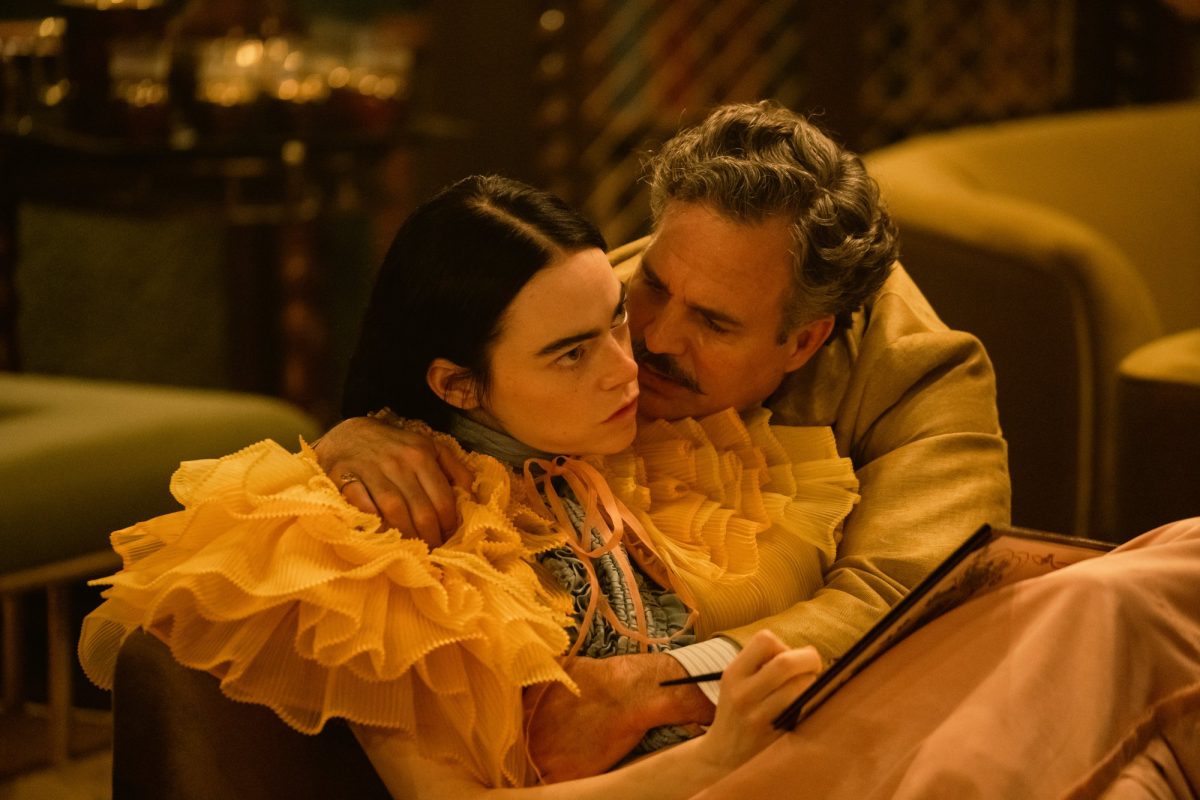I have quietly disliked “Poor Things” ever since I saw it in theaters this past December. The critical acclaim and outstanding Letterboxd reviews were not surprising, as the editing, production quality and incredible acting are undeniable. I was slightly confused that more people were not having in-depth discussion and debate about the content of the film. I struggled to rectify the dilemma I was having between the beauty of the filmmaking and the way it presented the pedophilia and sex work in the story.
Not only was “Poor Things” a personally unpleasant watch, but the story and certain choices made in the depiction of these topics raised my concerns. While I understand the power of making audiences uncomfortable to deliver a message, I don’t believe that “Poor Things” made its point effectively.
The story follows Bella Baxter, a child whose brain was put in a grown woman’s body, as she develops and experiences life. Enjoyers of the film seem to view Bella’s story as one where she was able to learn about the world and reclaim her agency, even amidst a patriarchal society where she is forced to engage with sex before she is an adult, but this feels disingenuous to the exploitation she suffers by the adult men in the film. I would be on board with this commentary if there was a more in depth exploration of the impact that predatory sexual experiences and sex work can have on women.
I’ve seen plenty of rhetoric on the internet with language similar to, “Depicting something does not mean you’re condoning it.” While this is absolutely true, we cannot pretend that the media consumed by the general public does not impact the way we think. Graphic depictions of a girl who calls sex “furious jumping” as a display of her innocence was not responsible to put in front of an audience as large as the one that watched “Poor Things.” The sheer amount of sex in this movie was entirely unnecessary to make a commentary about sexual liberation and the coming of age of women in an exploitative society.
An important point is often raised about Emma Stone’s role in the production of this film. Of course, her comfortability with the film showing her body is important, but it is not the primary concern in relation to the sex scenes in this film. A woman’s involvement in the creation of a movie does not absolve the movie from criticism about its content. Women can also create media that is harmful, as many have pointed out, and Stone’s seal of approval is not relevant to whether it’s problematic or not.
I would argue that Emma Stone’s own characterization of the film as a “rom-com” where Bella falls in love with life — even though it’s a joke — is an unfortunate way to brand the film and contributes to the issues I have with it.
Another interesting facet of online discussion is the concept of “media literacy.” Media literacy is an important skill which essentially indicates your ability to critically consume and analyze media. Where people are faltering in these claims about “Poor Things” is that they are equating those who don’t like the film with those who don’t understand it. I think it’s incredibly important that we allow criticism and disagreement about art to exist without insinuating that somebody was simply not smart enough to understand it or point to their “unwillingness to engage in art that makes them uncomfortable.”
Art is subjective, and we cannot expect everyone to have the same “takes” on a controversial piece of media. Particularly when a mainstream film delves into more sensitive subjects, the general public will vary in their watching experience and criticisms. It is important that we all leave space for these multiple interpretations, and don’t discount someone’s concerns with a movie just because you enjoyed it. Diverse perspectives, and in this case, the perspective of women, is essential to having productive conversations about media and its real life implications.
If you enjoyed “Poor Things,” that’s awesome, but pretending that in-depth critiques about how to frame certain sensitive issues in art is just people being media illiterate is disingenuous. Disliking the film does not mean that someone was too disturbed to read between the lines, despite those who suggest that. The truth is that when art depicts subjects like grooming, rape and prostitution, they deserve an analytical look at how it was done and if it was necessary in telling the story. In this case, I understood “Poor Things” completely and was still unimpressed by the way these topics were tackled.
Delaney Rauscher Adams is media literate. Reach out to her at [email protected].



